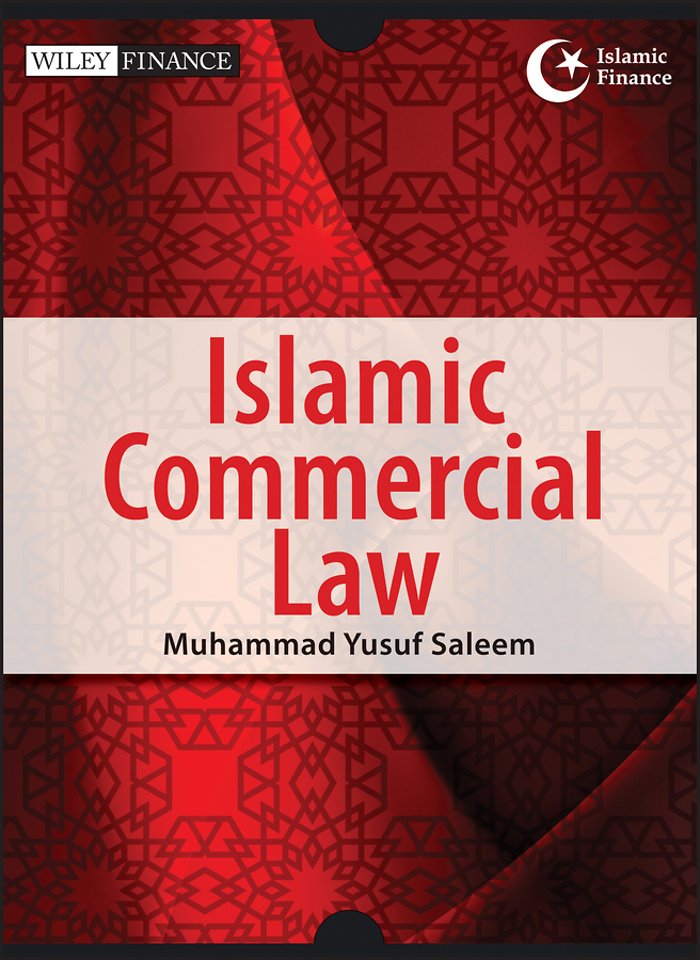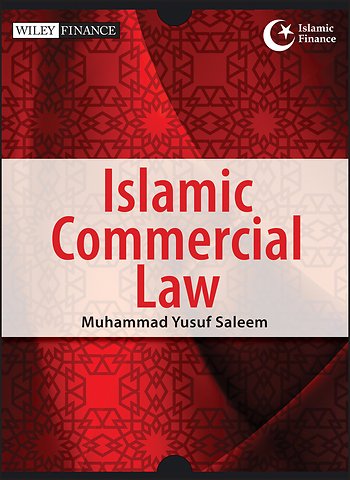Islamic Commercial Law
Paperback Engels 2013 9781118504031Samenvatting
A concise study of the practices in Islamic commercial law
Filling a gap in the current literature, Islamic Commercial Law is the only book available that combines the theory and practice of Islamic commercial law in an English–language text. From the experts at the International Islamic University Malaysia, the book examines the source materials in the Qur′an and Hadith, and highlights the views and positions of leading schools of Islamic law, without burying the reader in juristic minutia. It combines theory with practice to address the needs of students while providing a pragmatic treatment of Islamic contracts. It provides diagrams for individual contracts to reveal the type and nature of the contractual relationships between parties and discusses all types of fundamental transactions, including sales, loans, debt transfers, partnerships, and more.
Written by experts from the International Islamic University Malaysia, the leading organisation in research in Islamic finance
Closes a vital gap in the English–language literature on Islamic commercial law
Features end–of–chapter questions to enable self–testing and provoke critical thinking
An ideal guide for current students, researchers, and practitioners, Islamic Commercial Law offers a concise yet comprehensive coverage of the subject.
Specificaties
Lezersrecensies
Inhoudsopgave
<p>List of Abbreviations xiii</p>
<p>Acknowledgments xv</p>
<p>Introduction: An Overview of Prohibited Elements 1</p>
<p>Usury (Riba) 2</p>
<p>Ambiguities in a Contract (Gharar) 3</p>
<p>Gambling (Maysir) 4</p>
<p>Prohibited (Haram) Properties 5</p>
<p>1 The Contract of Sale (Bay ) 7</p>
<p>Introduction 8</p>
<p>The Pillars of a Sale Contract 9</p>
<p>Prohibited Sales and Practices 14</p>
<p>Contentious Sales 19</p>
<p>Chapter Questions 29</p>
<p>Notes 30</p>
<p>2 Types and Classifications of Sales 33</p>
<p>Introduction 34</p>
<p>Trust Sales (Buyu al–amanah) 35</p>
<p>Deferred Payment Sale (Bay Bi–thaman Aajil) 36</p>
<p>Islamic Banks and a Sale Contract 37</p>
<p>Future Commodity Sale (Bay al–Salam) 39</p>
<p>Manufacturing Sale (Bay al–Istisna ) 43</p>
<p>Currency Exchange (Bay al–Sarf) 47</p>
<p>Chapter Questions 49</p>
<p>Notes 50</p>
<p>3 The Contracts of Employment and Lease (Ijarah),</p>
<p>Borrowing (I arah), and Reward (Ja alah) 51</p>
<p>Introduction 52</p>
<p>The Pillars of the Ijarah Contract 53</p>
<p>The Contract of Borrowing Things (al–I arah) 60</p>
<p>The Contract of Reward for Service (al–Ja alah) 61</p>
<p>Chapter Questions 64</p>
<p>Notes 65</p>
<p>4 The Contract of Agency (Wakalah) 67</p>
<p>Introduction 68</p>
<p>The Pillars of an Agency (Wakalah) Contract 69</p>
<p>The Types of Agency 70</p>
<p>Agency in Sale 71</p>
<p>Agency in Purchase 73</p>
<p>The Effects and the Rights and Liabilities of the Contracting Parties 74</p>
<p>An Agent Appointing Another Agent 75</p>
<p>Unauthorised Agency (al–Fadhalah) 76</p>
<p>Termination of an Agency 76</p>
<p>Chapter Questions 77</p>
<p>Notes 78</p>
<p>5 The Contract of Loan (al–Qard ) 79</p>
<p>Introduction 80</p>
<p>Loan (Qard), Debt (Dayn), and Borrowing Things (I arah) 81</p>
<p>A Loan That Provides Conditional Benefi t to the Lender 82</p>
<p>Waiting or Giving Time to a Borrower Is a Commendable Act 84</p>
<p>Chapter Questions 84</p>
<p>Notes 86</p>
<p>6 The Contract of Safekeeping (al–Wadi ah) 87</p>
<p>Introduction 88</p>
<p>The Pillars of Wadi ah Contracts 89</p>
<p>Relationship Between the Parties 89</p>
<p>When Is the Depository Held Liable? 90</p>
<p>Using Deposited Money for Investment 91</p>
<p>Wadi ah and Islamic Banks 92</p>
<p>Termination of Wadi ah 92</p>
<p>The Differences Between the Contracts of Wadi ah and Qard 93</p>
<p>Chapter Questions 93</p>
<p>Notes 94</p>
<p>7 Partnership (al–Sharikat) 95</p>
<p>Introduction 96</p>
<p>Division of al–Sharikat 96</p>
<p>Capital Partnerships (Sharikat al–Amwal) 98</p>
<p>Management of Partnership (Sharikat al– Inan) 101</p>
<p>Partnership of Services (Sharikat al–a mal) 101</p>
<p>Partnership of Reputation or Creditworthiness (Sharikat al–Wujuh) 102</p>
<p>Partnership (Sharikat al– Inan/Musharakah) and Islamic Banks 104</p>
<p>Dissolution of Partnership 106</p>
<p>Chapter Questions 107</p>
<p>Notes 109</p>
<p>8 Silent Partnership (Mudarabah/Qirad ) 111</p>
<p>Introduction 112</p>
<p>Pillars of Mudarabah Contract 113</p>
<p>The Status of Sahib al–mal and Mudarib 114</p>
<p>Distribution of Profit and Treatment of Losses 114</p>
<p>Types of Mudarabah 115</p>
<p>Personal Expenses of the Mudarib 116</p>
<p>What the Mudarib Cannot Do 117</p>
<p>Void Mudarabah 117</p>
<p>Termination of Mudarabah 118</p>
<p>The Differences Between Musharakah and Mudarabah 119</p>
<p>Chapter Questions 119</p>
<p>Notes 121</p>
<p>9 Pledge, Mortgage, or Pawn (al–Rahn) 123</p>
<p>Introduction 124</p>
<p>The Pillars of Pledge (Rahn) 125</p>
<p>The Use of the Pledge by the Pledgee 126</p>
<p>Forfeiture of the Pledged Property 127</p>
<p>Chapter Questions 128</p>
<p>Notes 128</p>
<p>10 Guarantee (al–Kafalah) 129</p>
<p>Introduction 130</p>
<p>Pillars of Kafalah 131</p>
<p>The Effects of Kafalah 132</p>
<p>Immediate, Conditional, and Suspended Kafalah 132</p>
<p>Types of Kafalah 132</p>
<p>Charging a Fee for the Service of Guarantee 133</p>
<p>Letter of Guarantee 134</p>
<p>Termination of Kafalah 134</p>
<p>Chapter Questions 135</p>
<p>Notes 136</p>
<p>11 Transfer of Debt (al–Hawalah) 137</p>
<p>Introduction 138</p>
<p>Pillars of Hawalah 140</p>
<p>Types of Hawalah 140</p>
<p>Transfer of Right (Hawalat al–Haqq) 141</p>
<p>Bill of Exchange (Suftaja) 141</p>
<p>Termination of Hawalah 142</p>
<p>The Differences Between Hawalah and Kafalah 142</p>
<p>The Difference Between Hawalah and the Sale of Debt (Bay al–Dayn) 143</p>
<p>Chapter Questions 143</p>
<p>Notes 144</p>
<p>12 The Contracts of Absolution (al–Ibra) and Set–Off (al–Muqassah) 145</p>
<p>Introduction 146</p>
<p>The Subject–Matter of Ibra 146</p>
<p>The Pillars of Ibra 147</p>
<p>Types of Ibra 149</p>
<p>The Effect of an Ibra 149</p>
<p>The Differences Between Absolution (Ibra) and Gift (Hibah) 150</p>
<p>The Contract of Set–Off (al–Muqassah) 150</p>
<p>Classification of Muqassah 150</p>
<p>Chapter Questions 152</p>
<p>Notes 153</p>
<p>Answers to True/False Questions 155</p>
<p>Bibliography 161</p>
<p>About the Author 165</p>
<p>Index 167</p>
Rubrieken
- advisering
- algemeen management
- coaching en trainen
- communicatie en media
- economie
- financieel management
- inkoop en logistiek
- internet en social media
- it-management / ict
- juridisch
- leiderschap
- marketing
- mens en maatschappij
- non-profit
- ondernemen
- organisatiekunde
- personal finance
- personeelsmanagement
- persoonlijke effectiviteit
- projectmanagement
- psychologie
- reclame en verkoop
- strategisch management
- verandermanagement
- werk en loopbaan

